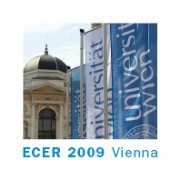Theory and Evidence in European Educational Research

Private and public enterprises, national and international agencies provide a wealth of data and information about education systems and processes unknown to previous generations. Concepts like “evidence-based policy making”, “quality assurance”, “data-driven decision making”, and “evidence-based teaching” have played an important part in this development. The rapid spread of national and international testing systems is another sign of the ongoing transformation of the field.
At the same time there are numerous reports from different European countries that resources for independent university-based educational research have been declining, and that the opportunities for unsolicited, critical research have worsened. The decline appears to have particularly affected those areas long considered to be the corner-stones of the discipline -- educational philosophy, history, general didactics, and other foundational subjects.
However, the changing environment is only one part of the story: There are good reasons to ask if those parts of the discipline which have dominated the field in the past did enough to provide the kind of information professionals, the public, politics, and society as a whole needed. But, likewise, we can ask if all the new data really produces ”evidence”, if there is a fundamental gap between the empirical wealth we have and the quality of the theoretical and methodological groundwork that underlies much of it. In other words, the rapid transformation of educational research provokes fundamental questions about the interplay between theory and research, data and evidence, and, not least, about the identity and coherence of educational research.
Vienna with its tradition of combining educational reform, research, and theory development has always been at the crossroads of this discourse. The first Professor of Education in Vienna (1805), Vinzenz Eduard Milde, sought to combine the empirical knowledge of his time with educational theorizing. Adler, Bernfeld, Bettelheim, Bühler, Frankl, Freud, Glöckel, Gorz, Illich, Lazarsfeld, Popper, von Foerster and Wittgenstein are but examples of other thinkers with a profound influence on the educational field who came from or started their careers in Vienna. Vienna is a perfect place to evaluate and analyse the history and current state of educational research, and to discuss and develop further the relations between theory and evidence in the European educational research area.
